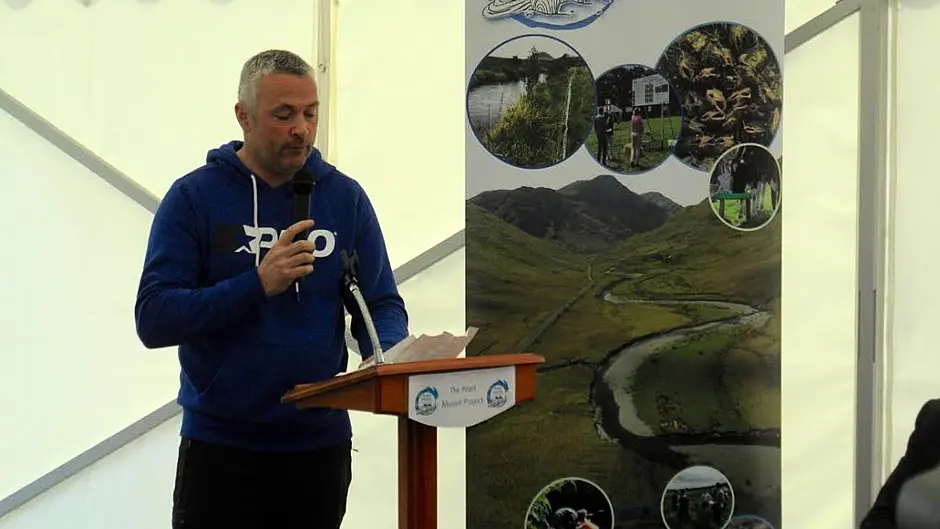A national conservation project has been launched in Beara to prevent the pearl mussel from extinction.
By Carina McNally
A NATIONAL conservation project has been launched in Beara to prevent the pearl mussel from extinction.
The Owagappul River in Ardgroom is among eight identified locations nationwide with the largest remaining pearl mussel populations. All populations outside these areas are nearing extinction and their biggest threat is silt pollution.
A national conservation initiative, the Pearl Mussel Project, took place in Ardroom recently, attended by dignitaries including Minister for Agriculture Michael Creed and TD Margaret Murphy O’Mahony.
Although this event marked the official launch of the project, farmers’ information and consultation evenings had already occurred.
Project manager Dr Patrick Cushell of Kenmare stated that the meetings at the Caha Centre in Ardgroom had a bigger turnout than any other centres, which showed the level of local interest in the project.
Agricultural advisor Diarmuid O’Sullivan stated that it’s all about ‘protecting what’s here, keeping an already natural environment pristine; going with nature and avoiding intensified farming around the lake.’
He said water flow is important to the mussels and they pick these areas because they need very clean water to survive, some are up to 140 years old.
The mussel attaches itself to trout or salmon gills for a year until they are strong enough to drop off and bury in sediment. After five years they reach maturity. Siltation causes a film to coat the gravel bed, therefore trapping the youngsters, so digging soil or letting cattle roam on ground near lake is detrimental.
Farmers, under a European Innovation Partnerships initiative (EIP), will be in receipt of a grant for maintaining and managing the surrounding lands. EIP schemes are raising the profile of how farmers can help biodiversity.
Local spokesperson Sean Sullivan said this was going a long way to stop the pearl mussel from extinction, and a small step to stop ‘the small farmer from extinction.’ Farmers are invited to submit expressions of interest in participating in the scheme by the end of April, with a five year contract in offer.







